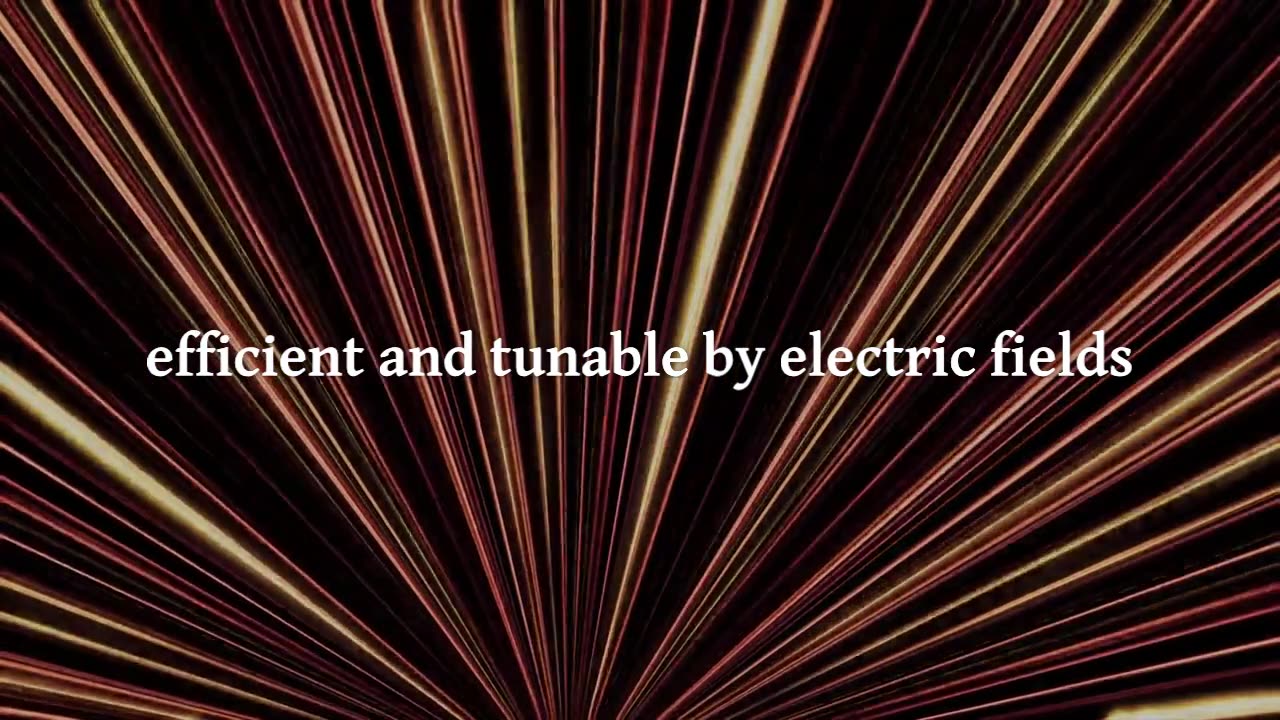Premium Only Content

Quantum Breakthrough: First-Ever SPDC in Liquid Crystals Unveiled
A groundbreaking study has demonstrated the use of liquid crystals for efficient and tunable spontaneous parametric down-conversion (SPDC), expanding the potential of quantum light sources beyond traditional solid materials.
Spontaneous parametric down-conversion (SPDC), a key method for generating entangled photons used in quantum physics and technology, has traditionally been restricted to solid materials. However, researchers at the Max Planck Institute for the Science of Light (MPL) and the Jozef Stefan Institute in Ljubljana, Slovenia, have recently achieved a breakthrough by demonstrating SPDC in a liquid crystal for the first time. Their findings, published in Nature, pave the way for the development of a new generation of quantum sources that are both efficient and tunable by electric fields.
The splitting of a single photon in two is one of the most useful tools in quantum photonics. It can create entangled photon pairs, single photons, squeezed light, and even more complicated states of light which are essential for optical quantum technologies. This process is known as spontaneous parametric down-conversion (SPDC).
-
 LIVE
LIVE
The Charlie Kirk Show
48 minutes agoThe RFK Confirmation Hearing + Dr. Phil On A Raid | Dr. Phil, Mansdoerfer | 1.29.2025
9,027 watching -
 1:00:33
1:00:33
The Dan Bongino Show
3 hours agoTruth Returns To The White House Press Room (Ep. 2411) - 01/29/2025
416K581 -
 LIVE
LIVE
Right Side Broadcasting Network
21 hours agoLIVE: RFK Jr. Testifies at Senate Confirmation Hearing for HHS Secretary - 1/29/25
28,781 watching -
 LIVE
LIVE
Grant Stinchfield
49 minutes agoVague Details: An Effort to Avoid Panic Over Drones & "The Research"
149 watching -
 LIVE
LIVE
Barry Cunningham
13 hours agoWATCH LIVE: RFK JR. CONFIRMATION HEARING! ROBERT F KENNEDY JR TESTIFIES BEFORE SENATE
1,572 watching -
 LIVE
LIVE
The Dana Show with Dana Loesch
42 minutes agoThe Dana Show | 01-29-25
526 watching -
 58:59
58:59
The Rubin Report
2 hours agoWatch Stephen Miller Destroy CNN Host’s Narrative with Facts in Only 2 Minutes
26.5K12 -
 LIVE
LIVE
Benny Johnson
3 hours ago🚨Robert F. Kennedy Jr. Confirmation LIVE Right NOW | Fauci and Big Pharma PANIC Over RFK!
20,493 watching -
 LIVE
LIVE
LFA TV
17 hours agoRFK CONFIRMATION & MORE! | LIVE FROM AMERICA 1.29.25 11am
6,120 watching -
 LIVE
LIVE
The Shannon Joy Show
1 hour ago🔥🔥Live Exclusive With Dr. Peter McCullough! RFK Jr. Confirmation Coverage & More!🔥🔥
393 watching